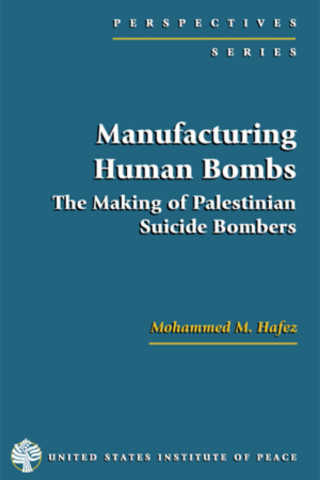Mohammed Hafez
Mohammed M. Hafez earned his Ph.D. from the London School of Economics and Political Science in 2000. From 2013–2018, he served as the Chair of the Department of National Security Affairs at the Naval Postgraduate School in Monterey, California. A specialist in Islamist movements and political violence, his books include Why Muslims Rebel: Repression and Resistance in the Islamic World (2003); Manufacturing Human Bombs: The Making of Palestinian Suicide Bombers (2006); and Suicide Bombers in Iraq: The Strategy and Ideology of Martyrdom (2007). His current book project, The Nearest Enemy: Factionalism and Fratricide in Militant Islamist Networks, investigates inter-rebel wars in Algeria (1992–2002), Iraq (2003–2011), and Syria (2011–2016) using a combination of comparative case analysis and network-analytic methodologies.
Dr. Hafez is also the author of over 25 journal articles and book chapters on political radicalization, foreign fighters, and Islamist ideologies. He regularly briefs government and military analysts on issues related to terrorism, the war of ideas, and countering radicalization. Dr. Hafez has made several appearances on PBS News Hour, NPR, CNN, C-SPAN, and other national and international media forums.
Author's Books
The war in Iraq was supposed to be easy. Instead it has delivered the message that Islamic resistance and martyrdom can defeat the only remaining superpower, just as jihadists drove the Soviet Union from Afghanistan during the 1980s. Now a haven for jihadists, Iraq has entered a civil war whose duration, scope, and magnitude have yet to be determined.
The overwhelming majority of suicide attacks in Iraq have targeted Iraqi security forces and Shia civilians, not coalition forces. The perpetrators appear to be largely non-Iraqi volunteers. Many are from Saudi Arabia, but substantial numbers have come from Europe, Syria, Kuwait, Jordan and North Africa. They are foiling U.S. plans to stabilize the country and turn it into a democratic regime and an ally in a region of religious radicalism, entrenched authoritarianism, and hostile states with nuclear ambitions.
Understanding the phenomenon of suicide bombing in Iraq is therefore vitally important for U.S. national security, foreign policy in the Muslim world, and the war on terrorism. This study, the first of its kind on the Iraqi insurgency, draws extensively on open-source intelligence and papers of record, primary sources from insurgent groups including online documents and videos, and interviews with U.S. servicemen who have served in Iraq. It examines the history of suicide bombing in Iraq and many other countries, theoretical perspectives on suicide bombing, the varied factions that comprise the insurgency, the ideology and theology of martyrdom supporting suicide bombers, their national origins and characteristics, and the prospects for a “third generation” of transnational jihadists forged in the crucible of Iraq.
Suicide bombings have become a terrifyingly familiar feature of contemporary warfare and insurgency. But explanations of such attacks are typically either too narrow or too superficial to enable us to understand—and thus combat—this complex and deadly phenomenon.
In this slim but remarkably balanced, informative, and insightful volume, Mohammed Hafez delves beneath the surface as he explores the case of Palestinian suicide bombers during the al-Aqsa intifada that began in 2000. Drawing on extensive research in the West Bank and Israel, Hafez reveals an intricate web of factors that fueled the campaign of suicide attacks. To understand the bombings, he argues, we must examine the interrelation among the motives of the individual “martyrs,” the calculations of the organizations that deployed them, and the attitudes of a victimized society. This approach yields not only a penetrating look at suicide bombers but also policy-relevant lessons for dealing with extreme political violence in places such as Iraq, Chechnya, and Afghanistan.
Highly readable, wonderfully concise, and packed with useful information, Manufacturing Human Bombs offers students an excellent introduction to its subject; for readers already well versed in terrorism and the Middle East, the volume offers a rare combination of rich empirical data, considerable analytical breadth and depth, and refreshing evenhandedness.


